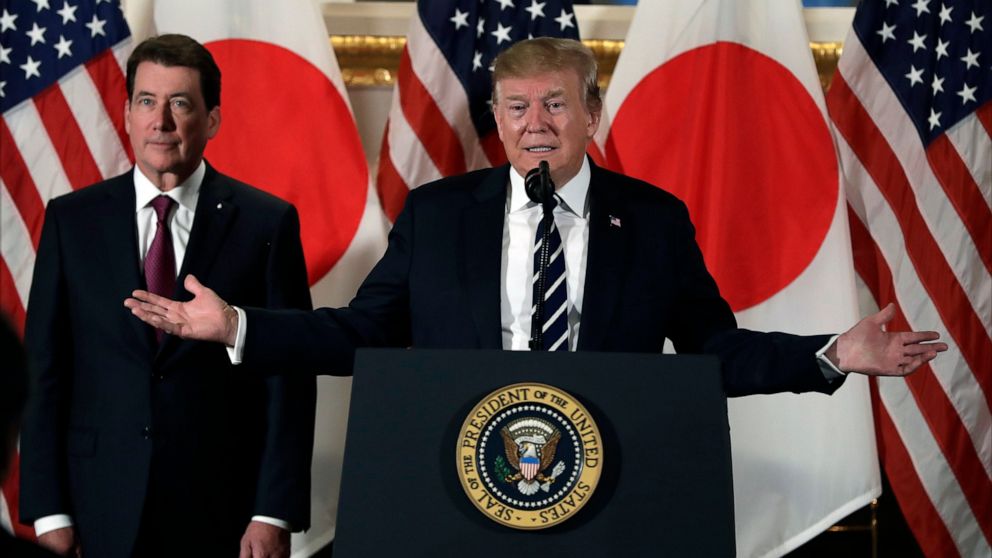BRUSSELS — Europeans were voting Sunday in the final day of an election that was poised to unleash a wave of far-right politicians onto the European Union, in their first continentwide chance to weigh in after a tumultuous stretch that has threatened to upend a grand border-erasing experiment.
In the five years since Europeans last voted for the European Parliament, the continent has been rocked by repeated terrorist attacks, a refugee crisis, Britain’s decision to split from the bloc and the lingering pain of the global financial crisis. Now anti-establishment raiders are poised to post their best result ever, giving them a foothold to try transform the European Union from the inside out.
From the Italian leaders who want to erect new barriers against migrants to Hungarians and Poles who question core European tenets about the independence of the judiciary, the newly energized far-right is expected to expand its power within the European legislature, even though pro-E.U. forces are expected to remain a majority.
Environment-focused Greens and other alternative parties are also projected to do well, contributing to a broad fragmentation of the continent’s politics, as the traditional center-left and center-right parties that have ruled Europe since the end of World War II continue to shed voters.
Initial exit polls in several of the countries that have voted, including the Czech Republic and Slovakia, suggest the anti-establishment parties are doing well. In countries voting Sunday, including France, Germany, Italy and Poland, opinion polls suggest centrists are losing ground.
The vote is a chance for Europe’s more than 400 million voters to register their thoughts about the E.U., and it could also unleash tremors in national politics as well. In France, President Emmanuel Macron is battling for first place with far-right leader Marine Le Pen’s party. In Italy, Interior Minister Matteo Salvini’s far-right League Party won second place in national elections last year, but Sunday’s vote is expected to formalize his newfound dominance of the country’s political scene. In Austria, voters will decide how much to punish a far-right party whose leader was caught on a newly released tape soliciting illicit support from Russia.
“For the first time in 60 years, with our European allies who also embody the awakening of the peoples of Europe, we have the chance to turn this crazy construction known as the European Union onto the paths of change,” Le Pen said at her final election rally on Friday.
The 28-nation European Union is a political and economic project born from the ashes of conflict that for decades has helped people and products move easily from Portugal right up to the border with Russia. But economic uncertainty has helped sweep away the old consensus about its utility. While strong majorities in places like Ireland and the Baltics continue to support it, more and more, countries are also souring on its values. They see less value in opening their doors to outsiders and feel their nations are served better by throwing up new barriers.
The churn started before President Trump stormed the White House in November 2016 as an outsider candidate, but it comes from some of the same root causes. Trump and his allies have reached out to ideological allies in Europe. This month, Hungarian Prime Minister Viktor Orban paid a visit to the Oval Office. Although Orban has swept away democratic protections at home, Trump offered nothing but praise.
The Kremlin is also watching the results with interest, since many of the far-right parties favor closer ties to Russia and want to sweep away sanctions imposed after the 2014 annexation of Crimea.
The end result is likely to be a European Parliament in which the centrist parties fail to reach a majority for the first time and have to draw support from lawmakers with less orthodox views of how to run Europe. Projections released before voting started Thursday showed the centrists falling from 53 percent of the vote, to only 42.
The legislature has a voice in some of the biggest issues facing the European Union. It approves senior E.U. officials, signs off on Europe’s massive budget and delves into gritty lawmaking, such as the sweeping data privacy rules that went into effect last year whose reach extends far beyond E.U. borders.
But it has also long been a haven for far-right forces. In 2014, they captured about one-fifth of the seats. Now they are poised to control a quarter, according to polls released before the voting started. They can use their seats to project power that is outsize to their sheer numbers by slowing and obstructing the functioning of the legislature, even though they will not be able to control its agenda.
For years, voters paid the European Parliament little attention. Election day turnout has slipped steadily since the first election in 1979, to 42.6 percent in 2014 — a sluggish result by European standards, where a higher percentage of voters typically participate in national elections than in the United States. The low turnouts favored the extremes, who were better able to marshal their passionate supporters to the polls.
This year there are signs there may be a turnaround, with voters of all political breeds seeing it as a pivotal moment that could shape the European Union’s future. In France, for example, turnout as of midday Sunday was about a fifth higher than in 2014.
In Italy, the Western European country that has most clearly thrown its support behind populism and the far right, the results will help determine whether Salvini can continue his rise as a nationalist torchbearer inside the bloc. Salvini has tried to build a new Pan-European far-right coalition, but it is Salvini’s own party, the League, that figures to account for a disproportionate percentage of the far-right’s gains across the continent.
The outcome will also have domestic implications in Italy, where for months the League has been sparring with its coalition partner, the Five Star Movement. A strong showing by Salvini could convince him to pull out of the coalition and use new elections as a bid to become prime minister.
Since forming the government one year ago, the League has risen to become Italy’s most popular party. Opponents have depicted Salvini as an absentee minister — perpetually holding rallies, rarely in the office — and recent polls suggest his party has lost some momentum. Still, projections indicate the League will win about one-third of Italy’s parliamentary seats, more than the Five Star Movement or other once-mainstream parties now relegated to the background.
Britain is also taking part in the election, despite its vow to pull from the European Union following a 2016 referendum. Prime Minister Theresa May failed to make Brexit arrangements that would have ended the membership before the election, so her country had to participate. Euroskeptic leader Nigel Farage is poised to repeat his 2014 poll-topping performance in the hard-fought campaign.
Chico Harlan in Rome and James McAuley in Paris contributed to this report.
Read more
Europe was worried Russia would mess with its elections. Now it has other fears.
Five things to know about Europe’s surprisingly dramatic parliamentary elections
Opinion: Yes, Europe’s far right is gaining strength. But so is the resistance.
Today’s coverage from Post correspondents around the world
Like Washington Post World on Facebook and stay updated on foreign news
https://www.washingtonpost.com/world/anti-establishment-forces-poised-for-gains-in-european-parliament-elections/2019/05/26/d2907ff0-7cc4-11e9-b1f3-b233fe5811ef_story.html
2019-05-26 13:44:09Z
52780301352929







